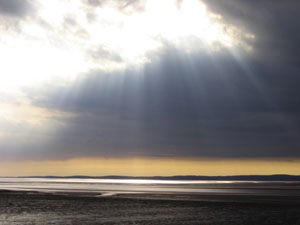Temple of Karnak
Nicholas Michell
Here let me sit in Karnac's gorgeous hall,
Firm as when reared each massy pictured wall:
Yielding to meditation's calm control,
How shrinks, in conscious littleness, the soul!
And as thought leaps the gulph that yawns between
Past days and now — what is and what hath been,
How brief, how petty human life appears!
A cloud that fleeteth as it rains its tears;
A puny wave on Time's vast ocean-shore.
That frets and foams, then melts to swell no more.
These ancient piles a higher moral teach
Than sage can write, or orator can preach;
The heart grows humbler in a scene like this,
Yet soars above low schemes of transient bliss;
And while it sighs that man should waste his hours,
Rearing such mighty fanes to unknown powers,
Looks inward at the creed itself maintains,
If born of heaven, or free from error's stains.
But musing thus, by wandering dreams beguiled,
We half forget the fabrics round us piled —
Fabrics that breathe from every sculptured stone
Awe and a solemn grandeur all their own.
Dim vistas stretch, white columns yonder rise,
And ob'lisks point, like flame, into the skies.
There frown huge kings in stone — such frown they wore
When on their thrones three thousand years before;
And one, the mightiest, Isis' arms entwine,
Immortal deemed, and like herself divine.*
Oh ! wondrous art ! yon granite roof behold
Fair still the colours, glittering still the gold;
In azure skies moons, clustering stars, appear —
Alas! the cunning hand that traced them here!
But pass we altars and rich glorious things,
Gigantic pillars, echoing halls of kings;
What see we traced in outline? — shadowy, dim,
The very breathing face and sinewy limb —
'Tis Thothmes, he who bade the Hebrew groan,
When hailstones fell and thunders shook his throne,
He to whom Moses spoke, the king who sped
On wings of wrath when trembling Israel fled,
Raised his bright sword, and drove his bickering car,
Comet-like breathing terror from afar,
Pursued his foe adown the Red Sea coast,
Then sank engulphed with all his fiery host.
Author's Note: * Four beautiful obelisks mark the entrance to the adytum, or secret chambers of the great Karnac Temple; and here one of the ancient monarchs is represented as embraced by the goddess Isis. As the early kings of Babylon were deified, so some of the Pharaohs received the honour of the apotheosis. The adytum alluded to consists of a large apartment and two rooms of less dimensions ; the roof of the first is formed by three immense slabs of granite, on which are painted, on a blue ground, several of the constella tions. The colours are at this day surprisingly fresh.
